The third Tsinghua Higher Education Forum, initiated by Tsinghua University, commenced on August 30 under the theme "Boundaries of Possibility: Empowering Higher Education with Artificial Intelligence." Li Luming, President of Tsinghua University, Lin Huiqing, Vice President of China Association of Higher Education, and Song Yi, Director General of the Department of Higher Education, Ministry of Education attended the opening ceremony and delivered speeches. Stefania Giannini, UNESCO Assistant Director-General for Education, delivered the video address. Yang Bin, Vice President of Tsinghua University, presided over the opening ceremony.
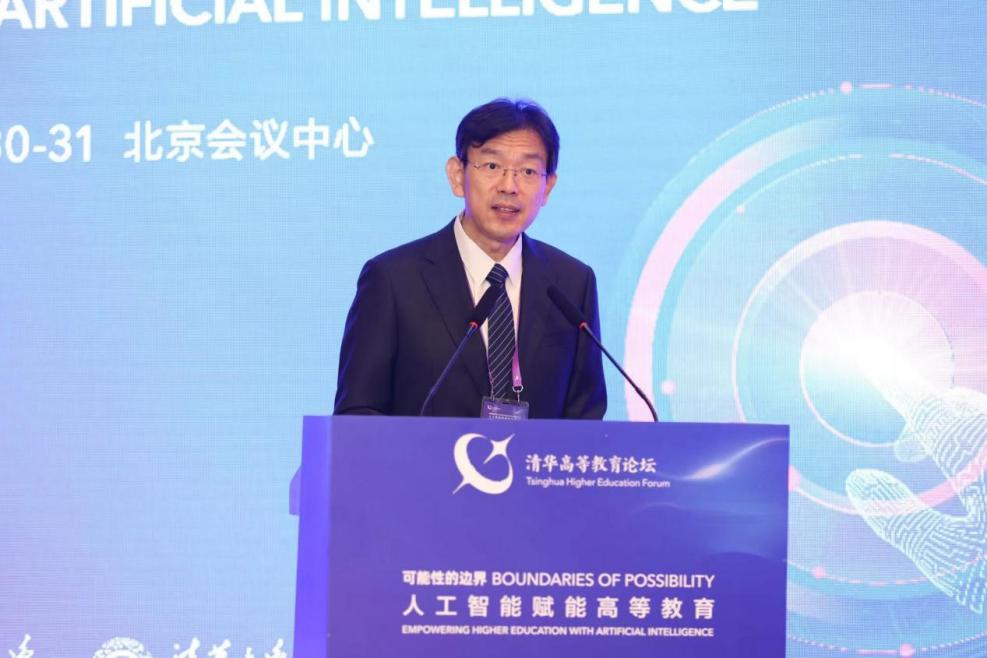
Li Luming delivers a speech.
Li Luming pointed out that higher education has not only played a nurturing and supporting role in the development of artificial intelligence, but is also being shaped and influenced by the rapidly advancing new generation of AI technologies. AI has made individualized learning more widely available by pushing the boundaries of student learning. Conversely, AI has broadened the scope of education and made it possible for high-quality education to be widely disseminated. Furthermore, AI has made it possible to embrace intelligent governance by extending the boundaries of university governance. However, he also cautioned that AI may bring unprecedented challenges to higher education, and therefore higher education institutions should approach these developments with an optimistic, open, yet cautious attitude, and strive to explore the potential boundaries of AI's role in strengthening education. Li also highlighted that Tsinghua University has taken proactive steps to advance various AI-empowered education initiatives. These include the launch of pilot courses for AI-empowered teaching, the introduction of AI-related general and advanced courses at various levels, the development of AI growth assistants with intelligent learning support functions, and the establishment of the School of Artificial Intelligence.
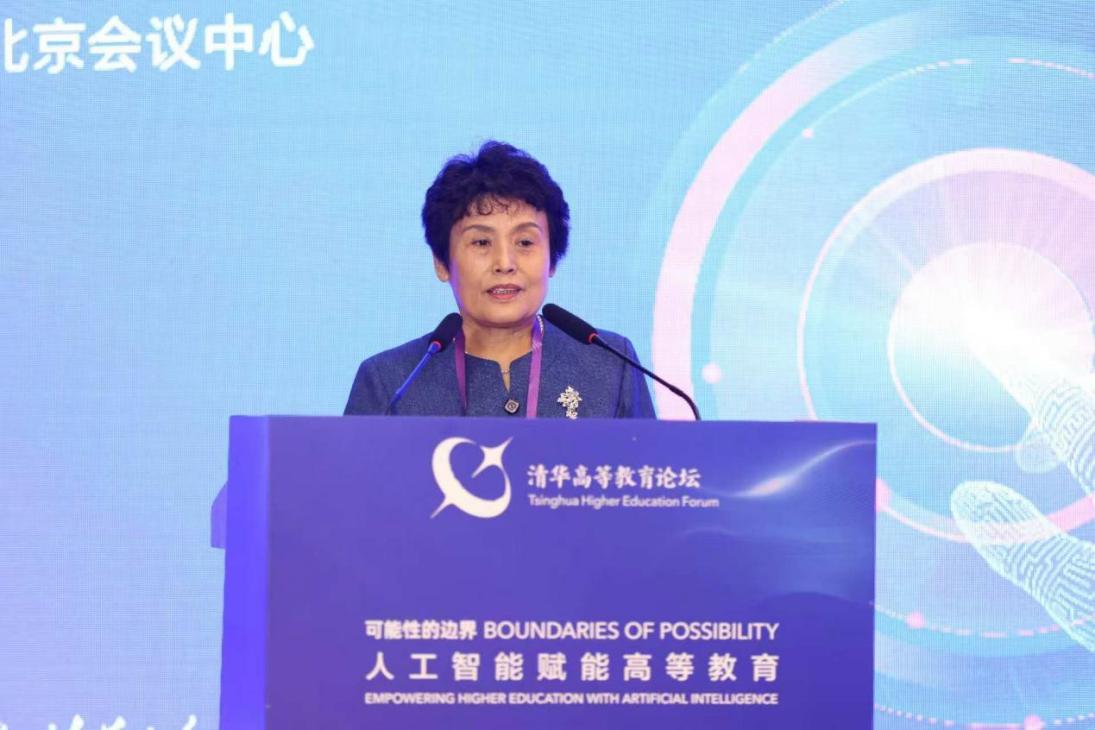
Lin Huiqing delivers a speech.
Lin Huiqing emphasized that artificial intelligence, as a strategic technology driving the technological revolution and industrial transformation, is reshaping educational structures, teaching models and research paradigms, and pushing education to new heights of high-quality development. She put forward four initiatives: First, to adapt to prevailing trends and change mindsets, attaching great importance to the revolutionary impact of AI on education; second, to deepen application and optimize practices, promoting the deep integration of AI with higher education; third, to emphasize ethics, mitigate risks, and develop intelligent education that is both humane and well-regulated; and fourth, to strengthen international exchanges and cooperation, building a global community for the development of intelligent education.
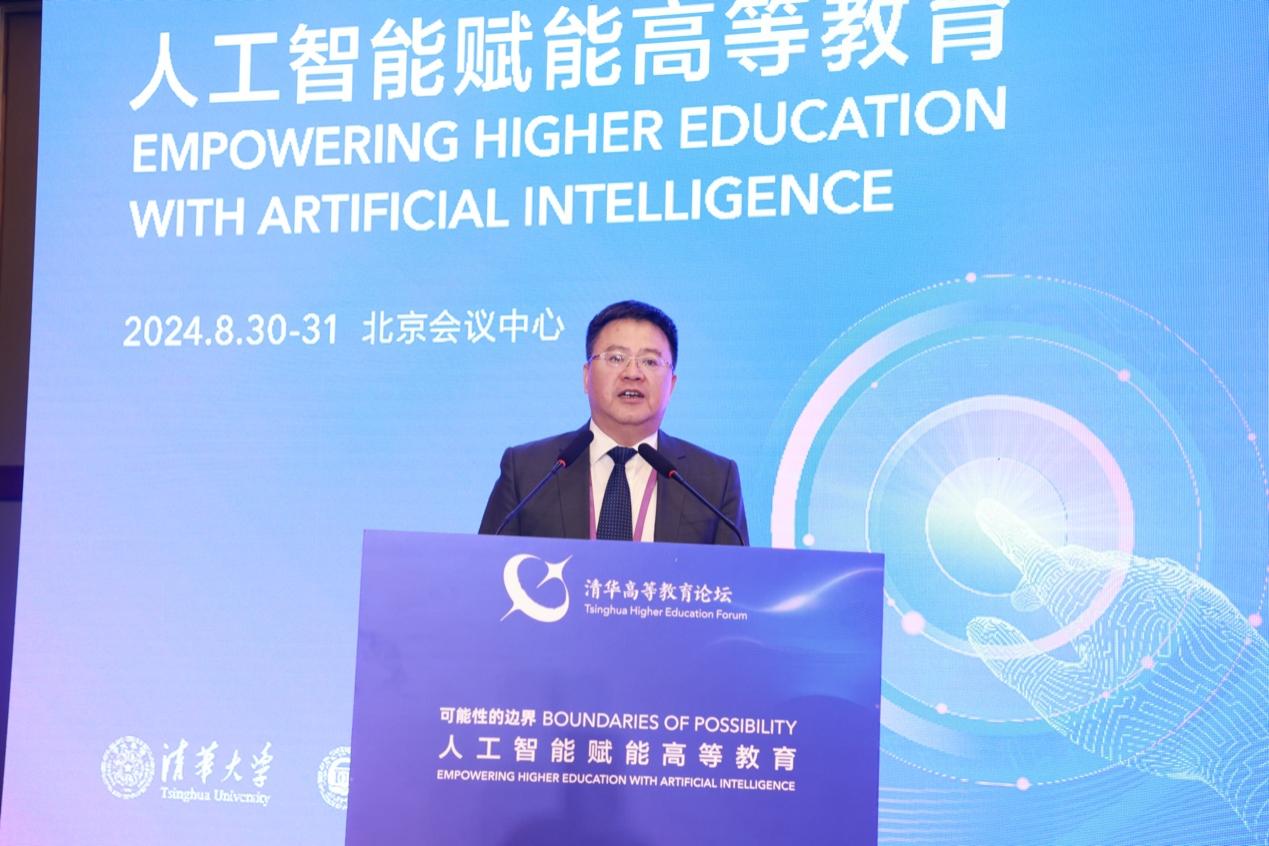
Song Yi delivers a speech.
Song Yi stated that it has become an important mission of higher education to grasp the global development trend of artificial intelligence, identify breakthroughs and supporting directions, and cultivate a large number of high-level talents who understand artificial intelligence and possess innovative capabilities and a cooperative spirit. The Ministry of Education attaches great importance to the digital development of higher education, and is committed to promoting the deep integration of AI into education and teaching. The higher education community should act quickly to fully equip education and teaching with AI technology and innovate talent cultivation methods. It is necessary to meet different needs and classify the cultivation of AI talents with both general and specialized knowledge, strengthen the core elements and comprehensively upgrade AI teaching resources, and deepen theoretical research to support and lead AI reform and innovation.
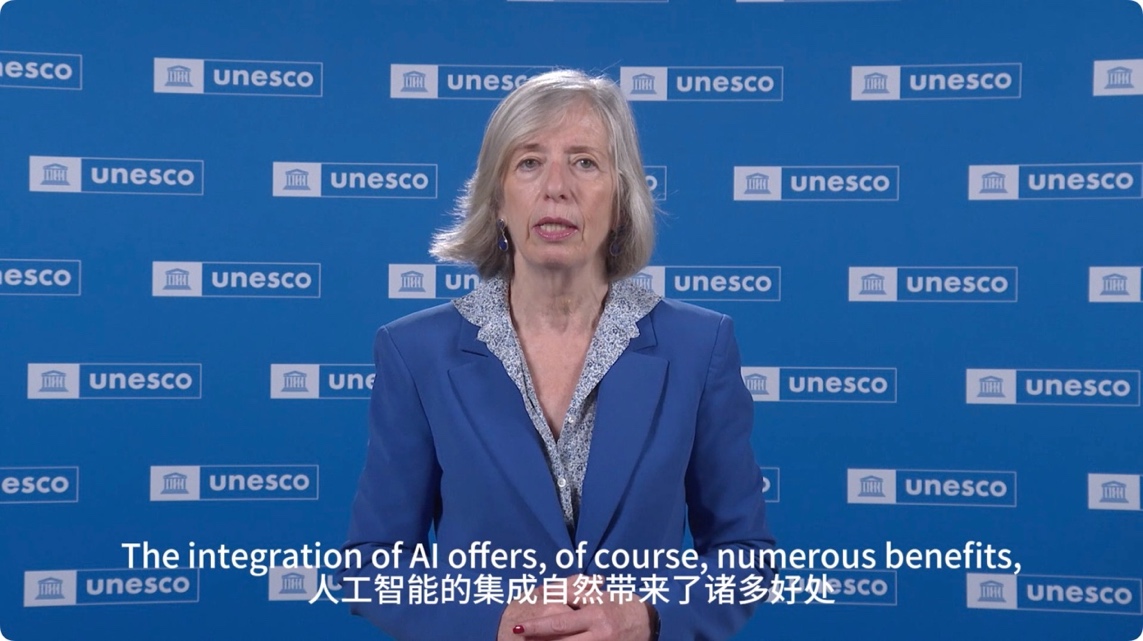
Stefania Giannini presents a video speech.
Stefania Giannini extended her warm congratulations on the convening of the forum. Giannini noted that artificial intelligence is rapidly changing the way we live and work, with profound implications for higher education. On the one hand, AI facilitates personalized learning experiences, enhances inclusivity, and promotes collaborative learning models. On the other hand, higher education institutions need to recognize and address the limitations of AI. She introduced UNESCO's guidelines on AI and its extensive recommendations on ethical issues, calling for a human-centered approach to the rise of generative AI and ensuring that its use adheres to ethical standards.
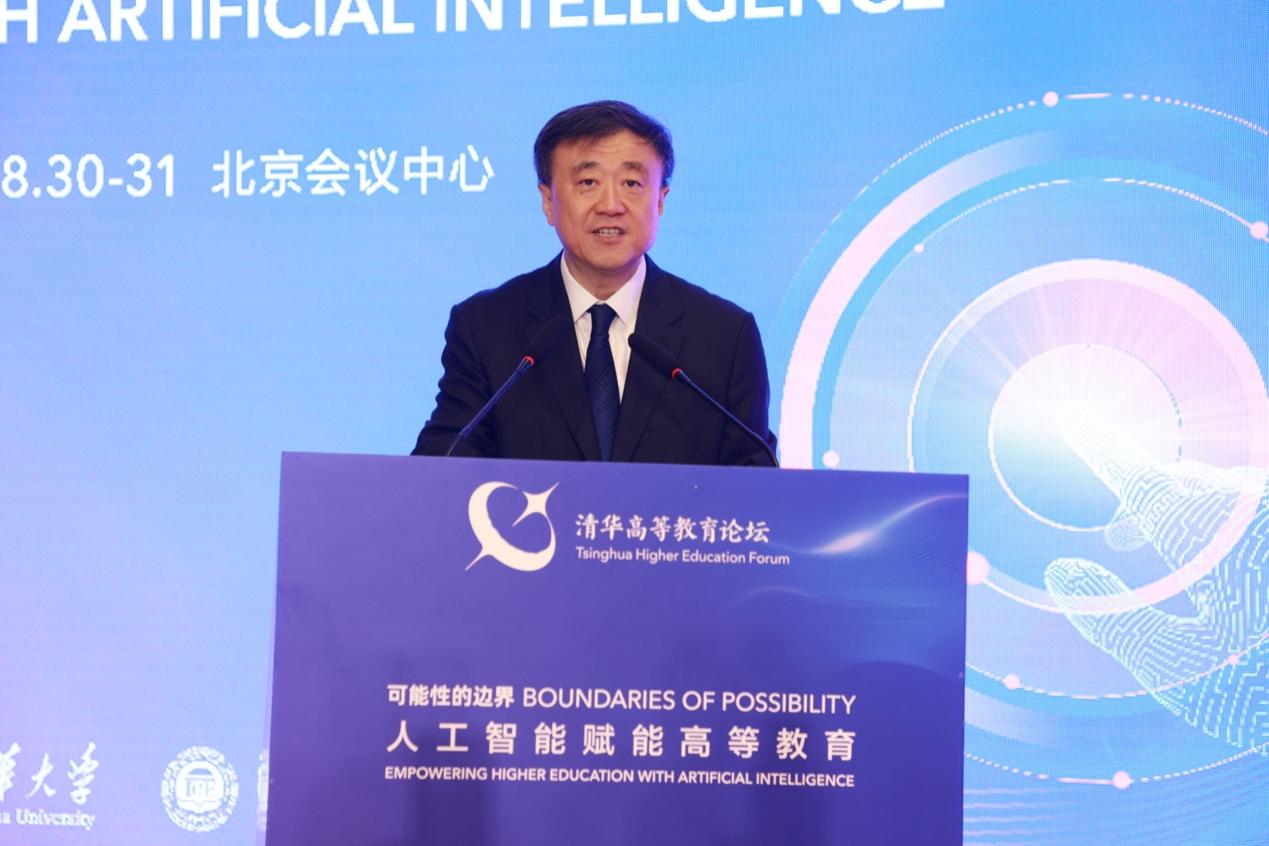
Yang Bin presides over the opening ceremony.
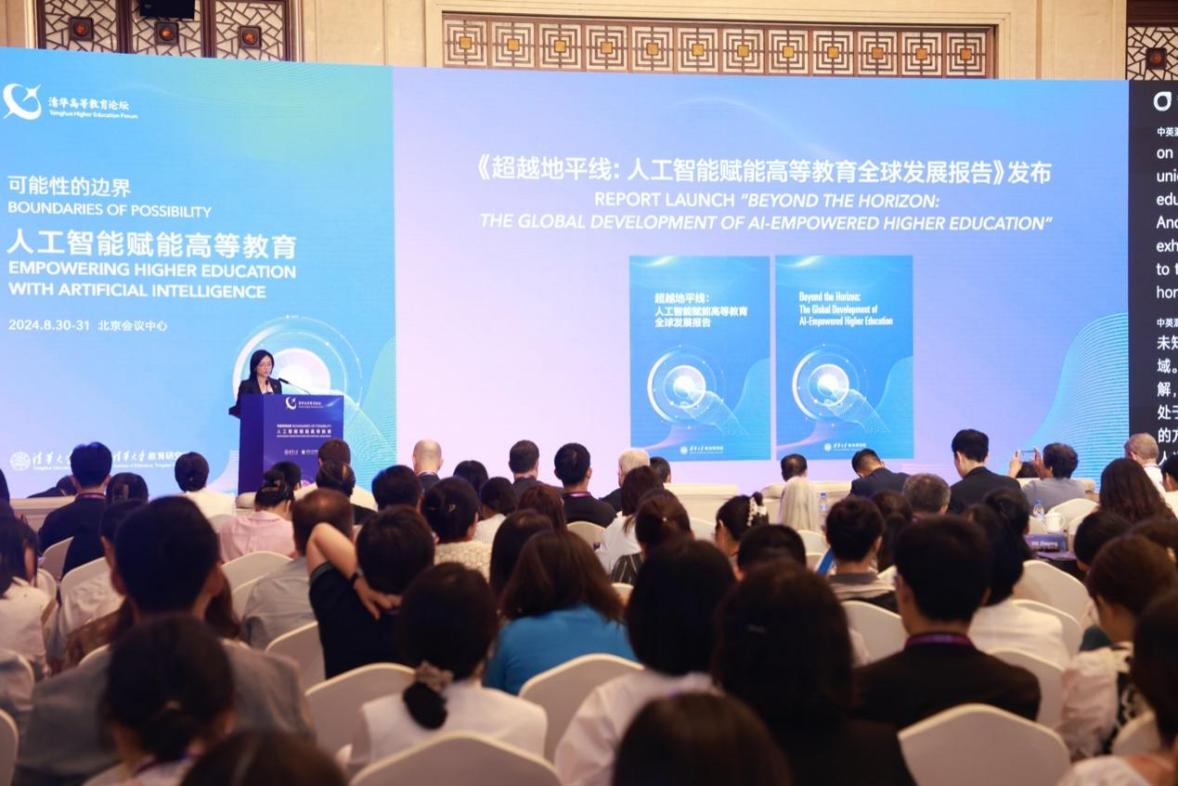
Professor Wen Wen, deputy head of the expert group that prepared the research report and director of the Division of Higher Education at the Institute of Education, presented the main contents of the report.
At the opening ceremony, the research team from the Institute of Education at Tsinghua University released the report "Beyond the Horizon: The Global Development of AI-Empowered Higher Education." The report analyzes the current state and challenges of AI-empowered higher education worldwide and provides in-depth reflections and forecasts on future development trends.
Keynote speeches were then delivered by Jean-Gabriel Ganascia, a computer scientist and philosopher from the Sorbonne University, Yang Zongkai, President of Wuhan University of Technology, Michael A. Peters, Professor at the University of Illinois, USA, and Xue Lan, Senior Professor of Liberal Arts at Tsinghua University, to explore the challenges and opportunities of AI-enabled higher education.
More than 500 experts, scholars and researchers from global educational institutions such as the European Institute for Educational and Social Policy (EIESP), the Sorbonne University, the University of Cambridge, University College London (UK), Syracuse University (USA), and Tsinghua University, Peking University, and the University of Hong Kong (HK), participated in the forum.
The third Tsinghua Higher Education Forum was held over two days, with keynote speeches and parallel forums. The parallel forums will focus on "Re-examining Higher Education in the AI Era: Values, Purpose, and Ethics", "AI and Higher Education Governance", "AI-Enabled University Courses, Teaching, and Assessment", "AI and Talent Cultivation: Interdisciplinary Round Table" and "Disruptive Innovations in Higher Education Empowered by AI: Conceptions and Practices."
Founded in 2022, the Tsinghua Higher Education Forum originates from China while embracing both domestic and international perspectives, striving to become a watchtower and think tank for global higher education reform.
From Institute of Education
Editor: Li Han

